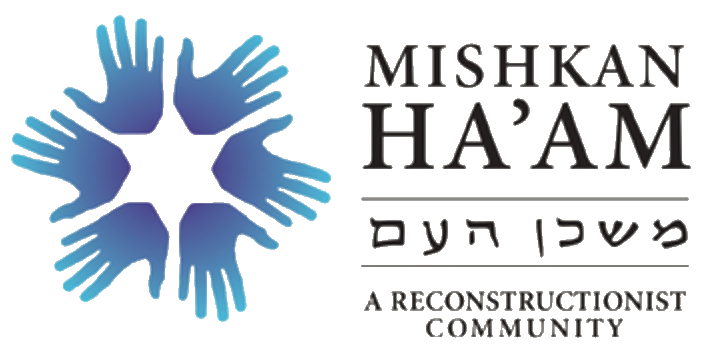By Joyce Bressler
When Solomon asked me to write a reflection for the High Holy days I thought I was too busy and not up to the challenge. But after awhile I realized what an honor it is. I have been connected to Mishkan Ha’am for the past few years. Although I live in Stony Point, NY, which sometimes feels like a million miles away I keep coming back. It is one path in my Jewish journey.
My parents were from a mixed marriage, Orthodox and Conservative. The synagogue in our neighborhood in Brooklyn was Orthodox. The women sat in the balcony, far from the action. I would sneak out and sit in the men’s section with my dad as a child. I liked holding the fringes on his talis and hearing him sing the prayers. The first time I fasted on Yom Kippur I was 12. I remember standing outside of the synagogue waiting for them to blow the shofar so I could eat the crackers in my pocket. But I was still an outsider.
We moved to Long Island when I was 14 and joined a Conservative shul. Everyone sat together. But women could not come to the bimah. It took decades for that to begin to change. Although I loved the holidays and being Jewish I resented the inequality. As a young adult I still maintained some traditions with a progressive twist, and held freedom Seders among my revolutionary friends; weaving the secular, spiritual and political, identifying with all oppressed people, finding my way to a Feminist Judaism.
Because of that history I am truly honored to be speaking here today. How does this all fit with the topic at hand? Well… As we enter the Days of Awe we take note of our lives from the past year and reflect on where we missed the mark. Our tradition is to pray together asking for forgiveness from G-d for how we missed the mark as a community. We confess for everyone, no one is singled out. But for those we may have harmed or hurt we must ask for forgiveness directly and also to be able to forgive.
I asked myself could I forgive the systems that harmed me and other girls and women and continues to do so. Where is the collective teshuvah? I am not sure. Perhaps it is the collective strength, resilience and courage demonstrated by these movements that made it possible for me to forgive. Holding on to grudges and rage doesn’t help us heal. To forgive ourselves and others could be a step toward transformation and true Teshuvah.
In my experience the resilience of my generation of women and activists helped make the changes we benefit from today. Judaism taught me to ask questions and to think critically, but we can’t question if we are not allowed in the conversation. So we rose up and started talking to each other in small consciousness raising groups. Struggle and change also comes with a price. These were painful times for many as marriages and relationships broke up and some I had known committed suicide under these social pressures. Other casualties were those of us who had suffered mental illnesses because of the difficulty to fit into the society around us and the burn out in trying to make those changes happen.
We, I survived because of an internal will to heal and the resiliency in community and the strength we shared. We were going to make a revolution and we needed each other. Hard lessons were learned how to stay strong in the long term. One woman I knew printed a t- shirt saying “Dare the Unknown, We are not Alone.” It was an example of spiritual unity not connected to any one religion. I wore that shirt for years until it fell apart. I also needed to come back to Judaism in a more liberated way. So yes I learned that we can only survive with the love and support of each other and the strength of community.
The leadership for the challenges we are facing in the current time is coming from young people especially girls and women, like Autumn Peltier a 15 year old from Wiikwemkoong First Nation on Manitoulin Island in Ontario Canada. She came to speak at the UN Global Landscape Forum and was welcomed at a ceremony I attended at the Split Rock Sweet Water Prayer camp of the Ramapough Lenape Nation, appealing across the generations to save our waters. And my heart was breaking when I saw Greta Thunberg’s plea to the UN that if the adult leaders don’t act on the climate crisis and ruin their future they would never forgive them. That was a moral and spiritual challenge. I pray that we do not fail them, and the world will earn their forgiveness, but it is people who will build the resilience needed now for all of us to make that happen. . I believe we can.

